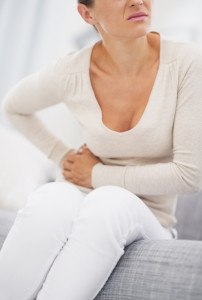 Many kinds of problems (functional, obstructive, infectious, inflammatory and cancerous) affect the gallbladder and liver systems. Eastern Medicine can address some of these, alone or as an adjunct. The more serious problems must be treated by Western/Conventional medical therapies.
Many kinds of problems (functional, obstructive, infectious, inflammatory and cancerous) affect the gallbladder and liver systems. Eastern Medicine can address some of these, alone or as an adjunct. The more serious problems must be treated by Western/Conventional medical therapies.
The liver produces bile, a liquid substance the intestines need to digest dietary fat. Bile travels from the liver to the gallbladder via ducts for storage. After eating fatty food, the intestines signal the muscular gallbladder to contract and propel bile through ducts into the intestines. Bile then breaks down fat in the intestines.
Diseases of this system include abnormally composed bile; disordered bile flow; or inflamed, infected or cancerous liver/gallbladder or ducts.
When bile fails to form properly, gallbladder “sludge” may then impede bile flow through ducts. In some—like those who are pregnant, taking oral contraceptives, or with diabetes—the gallbladder’s muscular contractions are weak (hypomotile). Whether alone or combined, abnormal bile and/or slow bile flow through ducts causes “bile back up”, or stasis, allowing bile to congeal and form gallstones.
Gallstones in the gallbladder most often produce no symptoms and create no problems. In about 20 percent of people with stones, gallbladder contraction produces pain either temporarily or chronically. In a much smaller percentage, gallstones may lodge in the duct leading away from the gallbladder, producing a surgical urgency. Symptoms of gallstones (and other gallbladder problems) are rather variable, but include vague or severe pain in the right, upper portion of the abdomen, lasting minutes to hours, often after eating fatty/fried foods. Severe obstructions may present with jaundice (yellow skin), itching and possibly fever. Fortunately, laboratory and imaging studies can identify gallbladder/associated structure problems well. Traditionally, medications helped dissolve stones; today, those with symptomatic gallstones usually undergo laparoscopic gallbladder removal.
Acute or chronic obstructive, infectious, inflammatory and cancerous gallbladder (and/or duct) diseases must always be managed by conventional/Western medicine. Antibiotics, anti-inflammatories and/or surgical gallbladder drainage/removal are essential.[1]
Sometimes, after gallbladder removal for benign (stone) disease, bowel dysfunction ensues (post-cholecystectomy syndrome). The symptoms include gas, bloating, diarrhea, upset stomach, nausea, vomiting, and sometimes lingering pain in the gallbladder region. Half of these patients have a stone remaining behind after surgery, half do not.[10] It is postulated [9] that this dysmotility may reflect exacerbation of an underlying intestinal motor dysfunction. As a functional problem, acupuncture and Chinese Herbal Medicine help manage this problem. Some of this diarrhea after surgery is due to inability to absorb fats (malabsorption). Sufferers may benefit from low fat diets (like those recommended in Ayurveda), Chinese herbs, medications, and/or digestive enzyme and medium-chain triglyceride supplementation.[2, 3]
Learn more about Gallstones
X
These brief overviews of conditions represent distillations of basic and current medical reviews from the following sources:
[1] Conventional Medical Sources
“Harrison’s Principles of Internal Medicine: Volumes 1 and 2, 18th Edition”. Dan Longo Anthony Fauci, Dennis Kasper, Stephen Hauser, J. Jameson, Joseph Loscalzo. McGraw-Hill Professional; (July, 2011)
Medscape eMedicine Physician’s online resource. Various review articles accessed March 2014
Irritable Bowel Syndrome
Jenifer K Lehrer, MD Attending Physician, Department of Gastroenterology and Hepatology, Aria Health System, Philadelphia
Inflammatory Bowel Disease
William A Rowe, MD President, Gastroenterology Associates of Central Pennsylvania, PC; Manager, Endoscopy Center of Central Pennsylvania, LLC; Clinical Associate Professor of Surgery, Division of Colon and Rectal Surgery, Milton S Hershey Medical Center, Pennsylvania State University College of Medicine
Gastroesophageal Reflux Disease
Marco G Patti, MD Professor of Surgery, Director, Center for Esophageal Diseases, University of Chicago Pritzker School of Medicine
Biliary (Gallbladder) Disease
Annie T Chemmanur, MD Attending Physician, Metrowest Medical Center and University of Massachusetts Memorial Hospital, Marlborough Campus
[2], [3]
“Acupuncture Energetics: A Clinical Approach for Physicians”. Joseph M. Helms. Medical Acupuncture Publishers; 1st Edition. (1995)
- “Foundations of Chinese Medicine: A Comprehensive Text for Acupuncturists and Herbalists”. Giovanni Maciocia. Churchill Livingstone; 2 Edition (July, 2005).
- “Diagnosis in Chinese Medicine: A Comprehensive Guide”. Giovanni Maciocia. Churchill Livingstone; 1st Edition (January, 2004).
4. “Chinese Scalp Acupuncture”. Jason Ji-shun Hao, Linda Ling-zhi Hao and Honora Lee Wolfe. Blue Poppy Press; 1st Edition. (November, 2011)
5. Vazquez-Roque MI, Camilleri M, Smyrk T, Murray JA, Marietta E, O’Neill J, et al. A Controlled Trial of Gluten-Free Diet in Patients with Irritable Bowel Syndrome-Diarrhea: Effects on Bowel Frequency and Intestinal Function. Gastroenterology. Jan 25 2013;[Medline].
6. Yamini D, Pimentel M. Irritable bowel syndrome and small intestinal bacterial overgrowth. J Clin Gastroenterol. 2010;44:672-675.
7 Kassinen A, Krogius-Kurikka L, Mäkivuokko H, Rinttilä T, Paulin L, Corander J, et al. The fecal microbiota of irritable bowel syndrome patients differs significantly from that of healthy subjects. Gastroenterology. Jul 2007;133(1):24-33. [Medline].
8 Rioux JD, Xavier RJ, Taylor KD, Silverberg MS, Goyette P, Huett A, et al. Genome-wide association study identifies new susceptibility loci for Crohn disease and implicates autophagy in disease pathogenesis. Nat Genet. May 2007;39(5):596-604. [Medline]. [Full Text].
9 Evans PR1, Bak YT, Dowsett JF, Smith RC, Kellow JE. Small bowel dysmotility in patients with postcholecystectomy sphincter of Oddi dysfunction. Dig Dis Sci. 1997 Jul;42(7):1507-12.
10 Mohammad Reza Farahmandfar1, Mohsen Chabok, Michael Alade1, Amina Bouhelal, Bijendra Patel. Post Cholecystectomy Diarrhoea—A Systematic Review. Surgical Science, 2012, 3, 332-338
http://dx.doi.org/10.4236/ss.2012.36065 Published Online June 2012 (http://www.SciRP.org/journal/ss)
